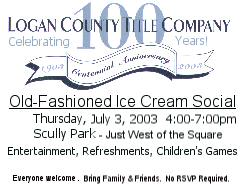|
Why do high air temperatures affect the body?
Normally, the body cools itself
by sweating. If temperatures are extremely high, however, sweating
is not enough to maintain the body's normal temperature. When this
happens, blood chemistry can change and internal organs, including
the brain and kidneys, can be damaged. Heat also can be stressful if
the temperature changes suddenly, since it usually takes several
days for the body to adjust to the heat.
What are some of the most common heat-related conditions?
The most common are heatstroke,
heat exhaustion, heat cramps, sunburn and heat rash. Heatstroke and
heat exhaustion are the most serious.

What is heatstroke?
Heatstroke occurs when the body
becomes unable to control its temperature. The body's temperature
rises rapidly, the sweating mechanism fails, and the body is unable
to cool down. Body temperature may rise to 106 degrees F or higher
within 10 to 15 minutes. Heatstroke can result from overexposure to
direct sunlight, with or without physical activity, or to very high
indoor temperatures. It can cause death or permanent disability if
emergency treatment is not given.
What are the symptoms of heatstroke and how are they treated?
Symptoms include an extremely
high body temperature (above 103 degrees, orally); red, hot and dry
skin; rapid pulse; throbbing headache; dizziness, nausea; confusion;
and unconsciousness. If symptoms of heatstroke are present, find a
cool place, preferably an air-conditioned indoor setting. Outside,
find a spot in the shade. Put the person in a semi-sitting position.
Loosen his or her clothing and bathe the head and body with COLD
water. Seek medical attention immediately.

What is heat exhaustion?
Heat exhaustion can result when
too much time is spent in a very warm environment, resulting in
excessive sweating without adequate fluid and electrolyte (salt and
minerals) replacement. This can occur either indoors or outdoors,
with or without exercise.
What are the symptoms of heat exhaustion and how are they treated?
Symptoms of heat exhaustion may
include dizziness, headache, nausea, abdominal cramps, shallow
breathing, cold and clammy skin, muscle tremors, and heavy
perspiration. A person suffering from heat exhaustion should be
moved to an air-conditioned environment if possible. If outside,
move the person to a shady spot.
How can I avoid heat exhaustion
and heatstroke?
Try to keep cool during
extremely hot weather. Stay in a cool environment (preferably
air-conditioned), drink plenty of fluids -- such as water, fruit
juices or fruit drinks -- and use common sense. Heat injury may
develop with or without feelings of discomfort.
What are heat cramps?
Heat cramps are muscle pains or
spasms -- usually in the abdomen, arms or legs -- that may occur in
association with strenuous activity as sweating depletes the body's
salt and moisture. If you have heart problems or are on a low-sodium
diet, get medical attention for heat cramps. If medical attention is
not necessary, stop all activity and sit quietly in a cool place,
drink clear juice or a sports beverage, and do not return to
strenuous activity for a few hours after the cramps subside, because
further exertion may lead to heat exhaustion or heatstroke. Seek
medical attention if the heat cramps do not subside in one hour.
What about sunburn?
Sunburn should be avoided
because it is damaging to the skin. Although the discomfort is
usually minor and healing often occurs in about a week, a more
severe sunburn may require medical attention. Symptoms of sunburn
are well-known: Skin becomes red, painful and abnormally warm after
sun exposure. Consult a doctor if the sunburn affects an infant
under 1 year of age or if these symptoms are present: fever,
fluid-filled blisters or severe pain.
When treating sunburn, avoid
repeat sun exposure, apply cold compresses or immerse the sunburned
area in cool water, apply moisturizing lotion to affected areas (not
salve, butter or ointment), and do not break blisters.
[to top of second column in
this article]
|

What if I do not have an air conditioner?
Seek out the nearest facility
that is air-conditioned, such as a cooling shelter, a senior citizen
center, public library, shopping mall, church, the local YMCA or a
center designated by your community. Even short periods of time in a
cool environment will lessen the risk of heat injury. Fans alone
will not effectively cool an overheated person when air temperatures
are above 100 degrees. A cool shower or bath is a more effective way
to cool off.
In the wake of the 1995 heat
wave in Chicago, many older people reported being afraid to open
windows or to venture out of their homes to go to cooling centers.
In these situations, people may want to contact the local police,
their church or a community group about being escorted to the
nearest cooling center.

What is "plenty of fluids"?
During hot weather, you will
need to drink more liquid than your thirst indicates. "Plenty of
fluids" means at least 1½ to 2 quarts of fluids daily. This can be
water, fruit juice, or fruit-flavored or carbonated drinks. Since
aging can cause a decreased thirst sensation, elderly people should
drink water, fruit juices or other fruit drinks at regular intervals
during the day even if they do not feel thirsty. Avoid alcoholic
beverages and those containing caffeine. Salt tablets are not
substitutes for fluids. Avoid very cold beverages because they can
cause stomach cramps.
What are some good tips on how to avoid heat-related problems?
Use a buddy system .
When working in the heat, monitor the condition of your co-workers
and have someone do the same for you. If you are at home and are 65
years of age or older or have a chronic health problem, ask a
friend, relative or neighbor call to check on you at least twice a
day during a heat wave, even if you have air-conditioning.
Limit outdoor activities .
Try to plan activities for the coolest times of the day -- before
noon or in the evening. While outdoors, rest frequently in a shady
area. Resting periodically will give your body's thermostat a chance
to recover. If you are unaccustomed to working in a hot environment,
start slowly. If you must work faster, pick up the pace gradually.
If exertion in the heat makes your heart pound and leaves you
gasping for breath, STOP all activity, get into a cool area -- or
least in the shade -- and rest, especially if you become
lightheaded, confused, weak or faint.

Drink plenty of fluids .
Even if you remain indoors and limit your activity, your body still
needs to replace lost fluids, salt and minerals. Make an extra
effort to drink a minimum of six to eight 8-ounce glasses of cool
fluids daily. During heavy exercise in a hot environment, drink two
to four glasses of cool fluids each hour. Parents should be sure
young children get sufficient fluids. Do not take salt tablets
unless directed by your doctor. If you are on a low-salt diet, ask
your doctor before changing what you eat or drink -- especially
before drinking a sports beverage. Caution: If your
doctor has prescribed a fluid-restricted diet or diuretics, ask your
physician about how much you should drink.
Protect your body .
Wear as little clothing as possible when indoors. Choose
lightweight, light-colored, loose-fitting clothing. When spending
time outdoors, avoid direct sunlight, wear a wide-brimmed hat and
use a sunscreen with a sun protection factor greater than SPF 15 to
protect yourself against sunburn. Apply sunscreen 30 minutes before
going outdoors and reapply according to package directions.
Never leave children, the
elderly or pets in a parked car, not even for just a few minutes.
The air temperature inside a car rises rapidly during hot weather
and can lead to brain damage or death. Cracking the window to let
air in does not protect kids from hyperthermia.
If you know of seniors who live
alone, whether they are family, friends or neighbors, consider
checking on them daily during periods of extreme heat.
A
final reminder: Take care of your pets.
In many ways, dogs and cats react to hot weather as humans do. Offer
pets extra water and be sure to place the water dish in a shaded
area if outdoors. Make sure pets have a protected place where they
can get away from the sun.
[Logan
County Health Department news
release]
|